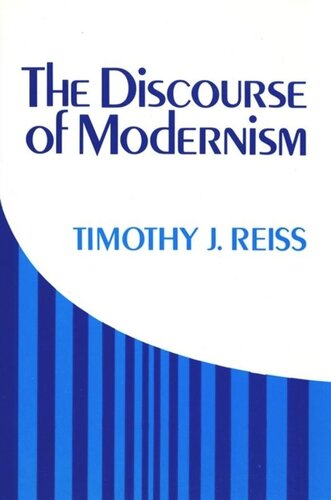

Most ebook files are in PDF format, so you can easily read them using various software such as Foxit Reader or directly on the Google Chrome browser.
Some ebook files are released by publishers in other formats such as .awz, .mobi, .epub, .fb2, etc. You may need to install specific software to read these formats on mobile/PC, such as Calibre.
Please read the tutorial at this link: https://ebookbell.com/faq
We offer FREE conversion to the popular formats you request; however, this may take some time. Therefore, right after payment, please email us, and we will try to provide the service as quickly as possible.
For some exceptional file formats or broken links (if any), please refrain from opening any disputes. Instead, email us first, and we will try to assist within a maximum of 6 hours.
EbookBell Team

4.0
36 reviewsTimothy J. Reiss perceives a new mode of discourse emerging in early seventeenth-century Europe; he believes that this form of thought, still our own, may itself soon be giving way. In The Discourse of Modernism, Reiss sets up a theoretical model to describe the process by which one dominant class of discourse is replaced by another. He seeks to demonstrate that each new mode does not constitute a radical break from the past but in fact develops directly from its predecessor.